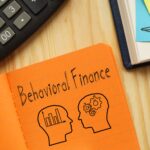
John Morton
|
||
|
2023 was an amazing year for investors, even though no one expected it! Rewinding to one year ago, investors were still in the doldrums after a horrible 2022 that saw both stocks and bonds decline by double digits. On the docket for 2023 was a year full of interest rate hikes, inflation pressures, wars, and – so we all thought – a recession. As a result, many investors were content to accept a (finally!) decent return on cash and just wait out the year. The Wall Street Journal summed it up well: “Almost no one thought 2023 would be a blockbuster year for stocks. They could hardly have been more wrong.” Despite what the investment strategists, economists, and media pundits may say, it will be very difficult to correctly predict how the economy and your investments will perform in 2024. Even if someone predicts accurately in one area – say, geopolitical risks or corporate profits or consumer strength – how the market reacts and moves during a year is so complicated that few, if any, can be right enough to make a profit off it on a consistent basis. Because not only does someone have to address data outcomes or event-specific risks, but that investor would also need to predict how human behavior reacts to that myriad of interwoven factors. The last four years are a great string of examples for this. 2020:
2021:
2022:
2023:
It’s clear that relying on future forecasts would have been a dangerous investment strategy over the last four years. Fear and greed, the opposing sides that encompass much of human investing behavior, influenced investors to be overly cautious heading out of the covid crash and 2022 declines but also overly confident after 2021’s rally. Just imagine the difference in portfolio return had you heeded the collective advice of the prognosticators vs. sticking with a disciplined investment strategy! Poor predictions aren’t just a post-covid phenomenon (2020 onward). A piece by the New York Times looked at a 24-year time period: 2000 through 2023. Rather than just giving a “verdict” as I did above, they measured the difference between the median forecast and actual returns of the S&P 500. For example, in 2022 a median forecasted rise of 3.9% was wrong by a margin of ~24% given the S&P 500’s 18% fall. So, how far “off” is Wall Street each year? |
“…the median Wall Street forecast from 2000 through 2023 missed its target by an average 13.8 percentage points annually…”
-Jeff Sommer, “Wall St. loves to Guess, but Nobody Knows What the Market Will Do in 2024”, New York Times
Talk about a wide margin of error! If your advisor, YouTuber, or CNBC host is touting their market prediction abilities, the evidence is clear: they just got lucky and that will be very, very difficult to repeat consistently. Despite ever increasing and timely data, market transparency, and better understanding of investor behavior, reliably forecasting the stock market remains elusive. In that light, a humble and disciplined approach to investing is best.
At Boardwalk, we help clients pick a portfolio that’s right for them and that they can stick with during rough times – this strategic approach is the proven winner in investing over the long run. Tactical investing (zigging and zagging amongst assets) results in poor investment outcomes on average. Instead of trying to identify how the market is wrong, we seek to harness the enduring relationship between risk and return by emphasizing the risks the market has rewarded consistently and persistently for long-term investors. Then, we go the extra mile to make sure that the things we can control – like tax efficiency, rebalancing, or getting excess cash to work –remain the focus to enhance wealth creation over time.
Our clients share that they enjoy peace of mind knowing their low-cost, diversified portfolio is designed to meet their long-term goals and promote financial security. Without knowing what’s in store for 2024, we hope these truths can provide you with confidence for the years ahead, no matter what they bring.











